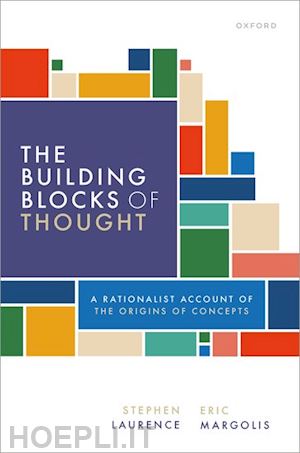This is an open access title available under the terms of a CC BY-NC-ND 4.0 International licence. It is free to read on Oxford Academic and offered as a free PDF download from OUP and selected open access locations. This is a broad and authoritative study of one of the central topics in the study of the mind: the origins of concepts. The authors survey the debate between rationalists and empiricists which stretches back to the very beginnings of philosophy, and has been at the centre of some of the most exciting research in cognitive science. Many have charged that the debate is riddled with confusion or that rationalist approaches, in particular, are deeply problematic. The Building Blocks of Thought offers a comprehensive rethinking of the foundations of this debate, showing that these negative appraisals are based on misunderstandings. Stephen Laurence and Eric Margolis argue that the debate should be understood to concern the nature of the unlearned psychological traits that provide the foundation for learning all concepts. They go on to argue for a version of concept nativism according to which there is a rationalist account of the origins of many concepts across many different conceptual domains. This rationalist view is developed around seven distinct arguments, drawing on a wealth of data across the cognitive sciences, which are shown to come together to form a unified large-scale argument to the best explanation for a rationalist account of the origins of concepts. Rounding out the case for concept nativism, the book contrasts this view with the most important and influential empiricist views, as well as alternative rationalist views, including Fodor's infamous radical concept nativism and his claim that concept learning is impossible. The Building Blocks of Thought argues for the enormous importance of learning and culture, showing how a thoroughly rationalist approach facilitates and enhances cultural learning and provides the foundations for the best overall account of the origins of concepts.











